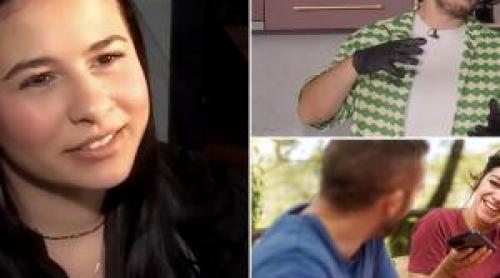
"How should we defend ourselves? How should we protect ourselves, if the ones we write about try to harm us?" These are the questions I have been asked during all the investigation-journalism courses I attended in the Balkans, as well as in countries like Azerbaijan, Georgia or Nepal, where the journalists work for nothing and can get into the obituary the next day. Many of these journalists think about their families, about their friends that they could get into trouble and about the risks of writing the truth that is often forgotten on the corner of a sheet of paper or on a trafficless website. However, many of them choose to investigate dangerous organized crime groups or to reveal the hidden parts of the politiciansâ dirty business. They choose the risk and the fair work, hoping that their articles would clear up certain cases.
I went to Vienna three weeks ago. There, I attended a meeting organized by the Human Resources Institute. Several former bursars of the institute were present. Anna Politkovskaya, a female journalist killed in Moscow two days ago, was one of them. Anna was about to talk about the pressure on the journalists in Putinâs Russia. Annaâs speech didnât take place, because she didnât manage to get to Vienna. She decided to stay in Moscow due to an important project she was working on and the organizers asked me to replace her and to talk about the investigation-journalism in the Balkans. At the end of 2004, I was in Washington at the Knight International journalism awards ceremony where I met the mournful family of Paul Klebnikov, the editor-in-chief of Forbes Russia, also killed in Moscow, in 2004. Klebnikov had unveiled many of the secrets of the oligarchs in the Kremlin shadow and he paid for it. These situations, as well as the ones in which I worked with journalists in Columbia, Ukraine or even Bulgaria, made me ask myself: why are the journalists in these countries so exposed? Is it the criminal system in these countries or is there something else? I think these journalists died because they had been fair. I donât think they died because they chose to be independent and tell the truth. I think they have been killed because they didnât reach any compromises. Do you know the most often questions a Romanian journalist has to answer to when he meets the people he writes about? "Who told you to write this? Who is behind you?" Questions like this show the Romanian journalist is usually seen as a simple tool of certain interest groups. This way, the Romanian journalist benefits from a pervert protection form. Why should anyone harm them? It is not their fault they write the things they write. There is always someone behind them, someone to draw the straws to command the conspiracy.

















